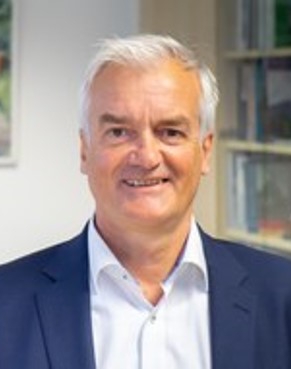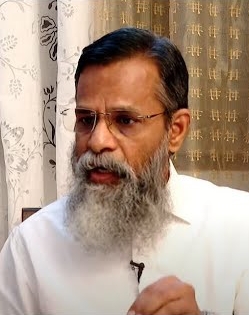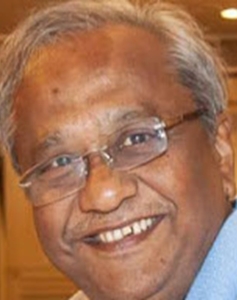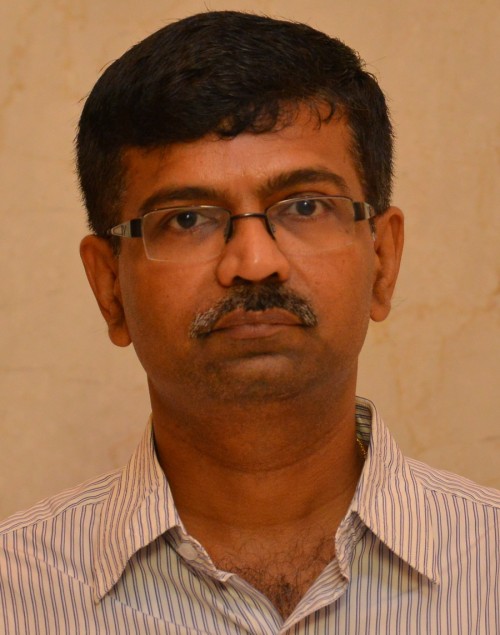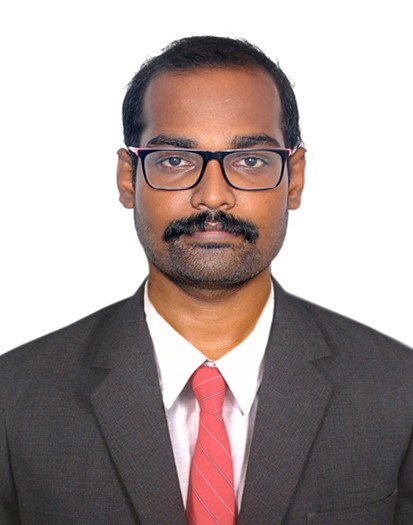Summary of IAHR Webinar on Climate - Resilient Coastal Cities
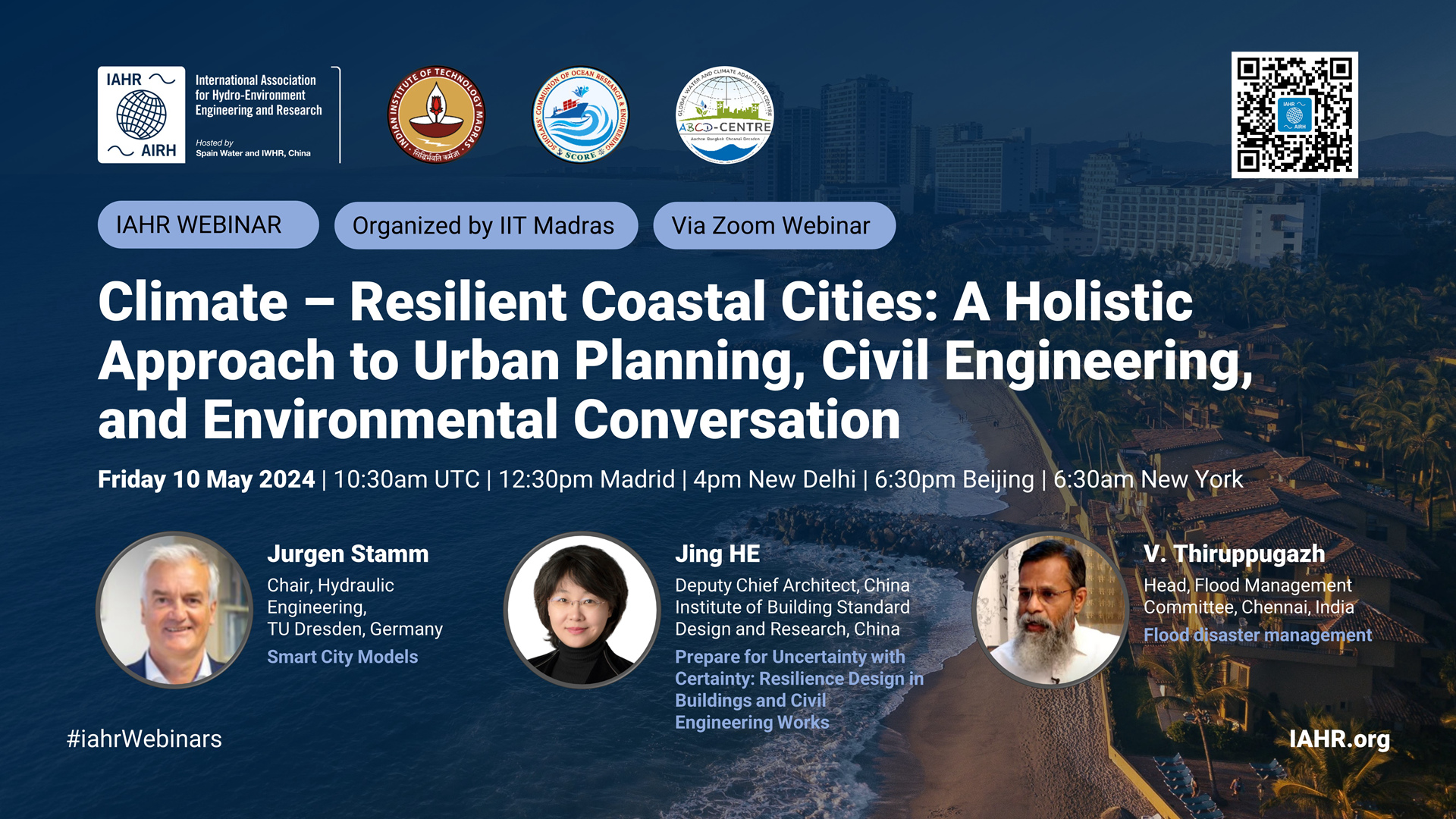
On May 10, 2024, IAHR and IIT Madras co-hosted the Webinar on Climate-Resilient Coastal Cities: A Holistic Approach to Urban Planning, Civil Engineering, and Environmental Conservation, bringing together experts to discuss innovative strategies for enhancing urban resilience to climate change. The event featured presentations from Prof. Jurgen Stamm, Dr. Jing He, and Dr. V. Thiruppugazh, with Prof. Vallam Sundar and Prof. Sannasiraj S. A. serving as chairs and Dr. N. Hari Ram as the moderator.
Professor Jurgen Stamm, Chair of the Hydraulic Engineering, TU Dresden, Germany, presented on the application of digital twins for flood risk management. He highlighted the increasing frequency and intensity of extreme meteorological events due to climate change and the potential of digital technologies to address these challenges. Stamm explained how semantic 3D city models can be integrated into hydraulic simulations to assess flood risks and inform urban planning. He emphasized the importance of accurate and detailed data for effective flood risk analysis and the role of digital twins in enhancing public awareness and acceptance of necessary measures.
Dr. Jing He, Deputy Chief Architect of the China Institute of Building Standard Design and Research, also Chair of the ISO/TC59/SC20 Resilience of Buildings and Civil Engineering Works, discussed the resilience of buildings in the context of climate change. She traced the evolution of building materials and methods, noting the significant carbon footprint of modern construction practices. Dr. He underscored the need for future-oriented design parameters that account for the increasing intensity and frequency of extreme weather events. She shared innovative examples from Thailand and Malaysia, illustrating how resilient building practices can mitigate the impacts of climate change and enhance the sustainability of urban environments.
Dr. V. Thiruppugazh, Head of the Flood Management Committee of Chennai, India, focused on urban flood mitigation strategies, drawing from his experience in Chennai. He identified rapid urbanization, poor planning, and inadequate drainage systems as major contributors to urban flooding. Dr. Thiruppugazh advocated for integrated flood mitigation solutions, emphasizing the importance of rainwater harvesting, permeable pavements, and effective reservoir management. He also highlighted the need for community-based disaster management and comprehensive urban planning to reduce flood risks and enhance resilience.
After the presentations, the speakers engaged in a lively Q&A session moderated by Professor Vallam Sundar. The discussions delved into the practical applications and challenges of the topics presented. Speakers addressed the comparative benefits of different modeling approaches, the integration of community-based strategies, and the impact of urban planning on flood mitigation. They also discussed the importance of accurate data, resilient building practices, and the role of public awareness in enhancing urban resilience to climate change.
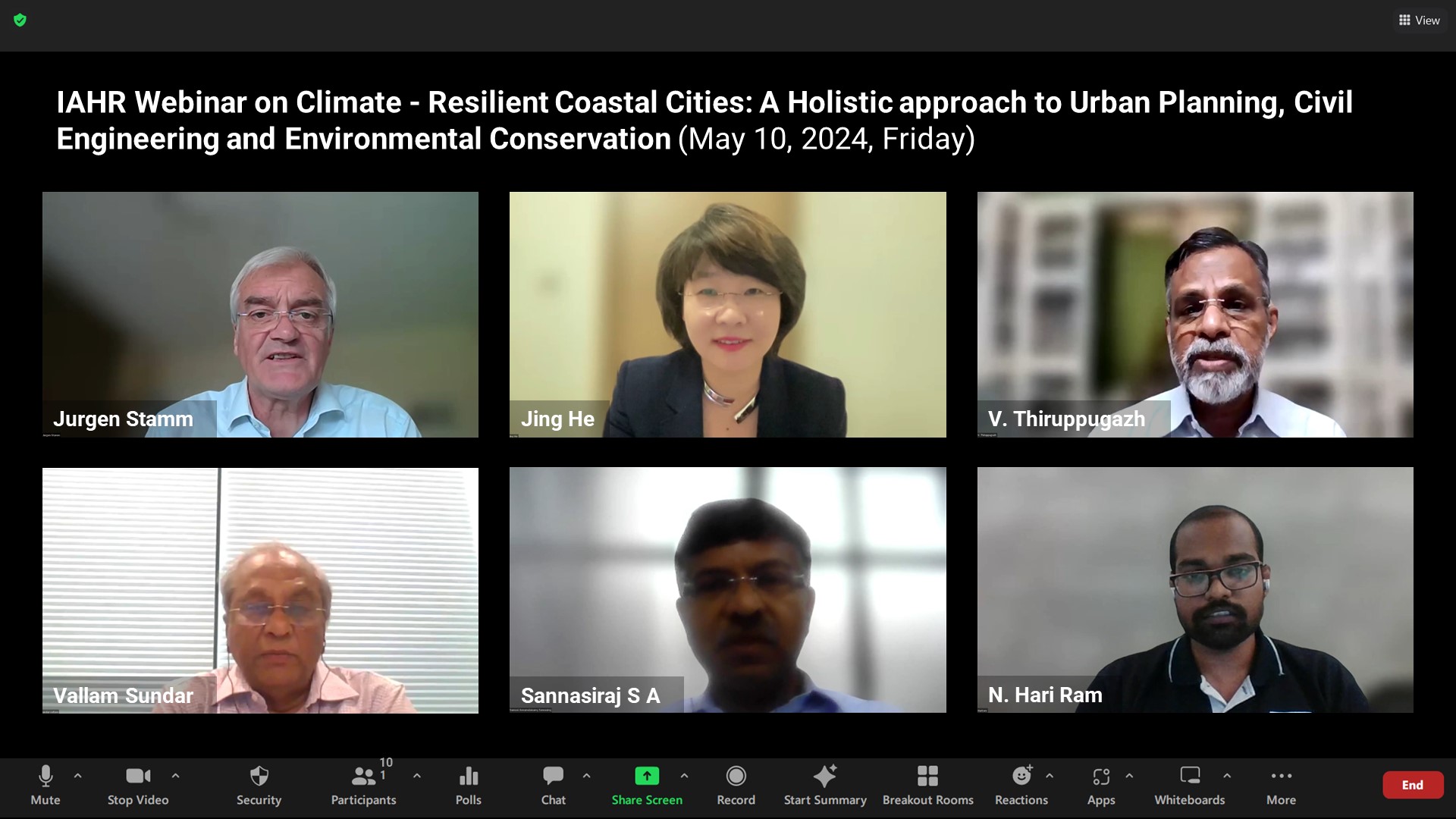
The webinar concluded with closing remarks from Professor Sannasiraj S. A., who expressed gratitude to the speakers and participants. He highlighted the success of the webinar in fostering an engaging and informative discussion on climate-resilient urban planning. The event underscored the importance of interdisciplinary collaboration, advanced digital technologies, and community engagement in tackling the complex challenges posed by climate change. The discussions and insights shared during the webinar will undoubtedly contribute to ongoing efforts to enhance the resilience and sustainability of urban environments globally.
